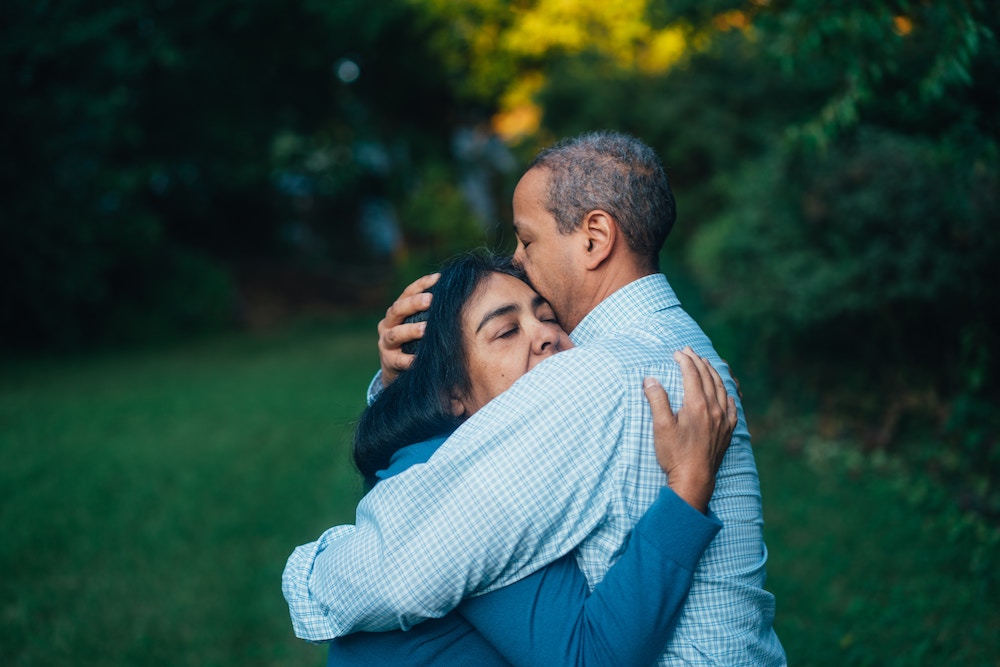The Healing Power of Compassion

“If you want others to be happy, practice compassion. If you want to be happy, practice compassion.” Dalai Lama
Every being on this earth deserves love and compassion, and we could all use a little more of it in our lives.
Compassion is sometimes referred to as a moral or personality trait, but having compassion is a way of being.
What Does it Mean to Have Compassion?
When you see someone in pain and distress and reach out to help them, that’s showing compassion.
Having compassion towards others doesn’t have to be an extraordinary act. Sometimes the simplest acts of kindness and empathy have the greatest impact. Like when someone forgets a bag of groceries at the cash register and you call out to them, or pick up a dollar bill for someone who’s accidentally dropped it on the ground. These tiny acts of compassion make you feel warmth, love and joy inside.
But to have compassion for others, you must also have compassion for yourself. This can be tough, since some of us tend to be very hard and critical on ourselves— even more so than we are to others.
Why It’s Essential to Your Well-Being to Have Compassion for Yourself

You are a human: a spiritual being who has needs, desires, and suffering. Just as you will experience great successes, you’ll also make mistakes and go through hardships. That’s what you’re on earth to do: learn and grow. When you recognize this, it’s easier to be more patient and gentle with yourself, forgive yourself for mistakes, and accept yourself exactly the way you are. All of these acts are acts of self compassion, and self love.
Once you’re able to have compassion for yourself, you naturally have more compassion for others, and can leave a lasting, positive impact that can help change lives— if even in a small way. Showing compassion for others means you can take all of the love and care you’ve nurtured yourself with, and pass it onto someone in need. And there is no greater, or more satisfying internal reward than being able to give freely to others. Wouldn’t you agree?
Let’s look closer at 2 easy ways you can start loving yourself and others more every day, which will lead to a more rich, abundant, and fulfilling life.
How to Have More Compassion Through Conscious Communication and Listening

What is Conscious Communication?
Conscious communication (sometimes called non-violent or compassionate communication) is a tool that helps you keep empathy at the forefront in a heated or negative conversation. For instance, during a fight with a loved one.
For many of us, our natural reaction is to respond to negativity with negative emotions. Maybe by lashing out, and reacting with anger. And although it may seem difficult the first few times you try this, responding to an argument with empathy and understanding for the other person is the best way to speak to a person who’s arguing with you.
If this seems tough to imagine, consider this: their anger and aggression is like the pain they’d experience if they fell in front of you and broke a bone. The person arguing with you is simply expressing pain in a different way. Recognizing this fact allows you to have patience and understanding, and can help you resolve an argument rather than escalate it.
Non-violent communication is like a two step process, because it also involves compassionate listening.
What is Compassionate Listening?
Compassionate listening is a tool that can help you better understand what others are trying to communicate with you. So often, we’re eager to talk, and we shut down or give our attention to the hundreds of thoughts in our minds when it’s our turn to listen. But compassionate listening is one of the greatest ways to show empathy and deepen your connection to others. Give it a try, and you’re guaranteed to walk away from a conversation with an entirely new understanding.
However, compassionate listening is more than just listening. It involves listening without judgement or criticism, and accepting the views and opinions of others. It’s a skill that takes practice. When you’re listening with compassion, it’s important to be in the present moment, and detach from negative emotions. This also avoids turning any conversation into a gossip session, which is something that happens frequently in conversations for many of us.
4 Easy Ways to Practice Compassion Every Day

Knowing what compassion means is one thing. To put it into practice is to show commitment to a journey that can change your life.
1.Think Before You Say Yes (It’s Okay to Say No)
Being compassionate towards others doesn’t mean saying yes to every request you’re asked. Remember, it’s important to have compassion for yourself and to put your mental and emotional well-being first. Only then can you have more compassion to others. Saying “yes” to every request that’s asked of you is not showing self-compassion.
So often we get worried we’ll offend others if we say no. We fear they’ll be mad at us, or won’t like us. But these beliefs aren’t true once you recognize the importance of self-compassion. Next time someone asks you a favour, tell them you need to think about it first. There’s always “power in the pause”. Consider how the favour will affect your physical and mental health, and then give your answer.
2. Show Gratitude
Studies have shown that showing gratitude makes you more optimistic and gives you a more positive, happy outlook on life.
Studies show that having gratitude and appreciation for even the smallest things in life makes you more optimistic, joyful, and gives you a more positive outlook on life. When you experience joy and love, you can pass this joy and love onto others through compassion.
Many reports state there is a direct link between gratitude and overall well-being. The Today Show reported on studies claiming gratitude improves health. It can lower blood pressure, improve immune function and help you sleep better at night.
3. Serve Others in the Community
There is always someone needing help. Volunteering at community organizations that serve your community, whether through food banks, shelters or any other way can teach you compassion.
“When you’re feeling helpless, help somebody.”
There’s always someone who’s in need of help. Volunteering at community centers, shelters, pet shelters, recovery houses, and even yoga studios or other activities in your community can help you practice more compassion.
Getting to know people who are less fortunate than you also helps you feel more compassion. It allows you to see that less fortunate people are just like you, and have problems just like we all do.
4. Put Yourself in Their Shoes
An easy way to instantly become more compassionate is to put yourself in another person’s shoes. How would you feel if you were in the shoes of someone who’s hurting? How could you extend compassion towards them, and help them? What would help you most if you were in the same situation?
As you can see, having compassion for yourself and others is the path for loving and appreciating the life you’ve been given, which has a profound impact on your emotional and mental health. And when you’re feeling joy, love, and appreciation from practicing compassion, like a magnet, you’ll attract more situations that cultivate these emotions. Who doesn’t want to have more joy, love, and abundance? Having compassion is, and always will be, a win-win for all.
Having compassion for yourself and others can greatly help you on your path to healing, and complete wellness. This is why having compassion is one of the components of our Two Week Mind-Body-Spirit Integration program– which helps you discover a deeper sense of safety, support, emotional freedom, and inner peace. Learn more.
